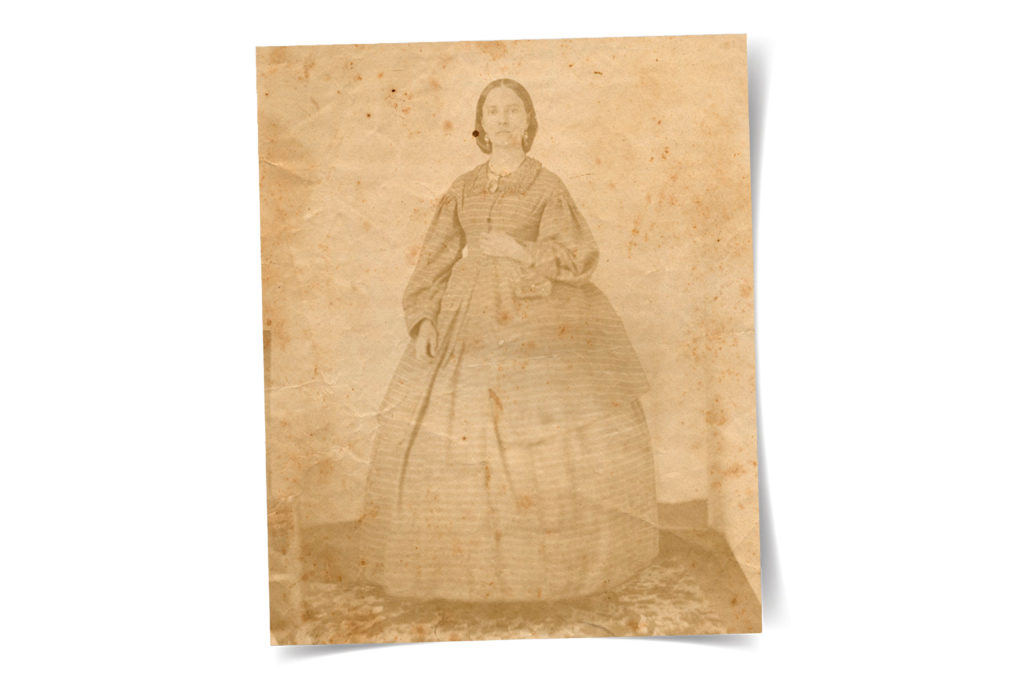Texas Titans: Sarah Horton Cockrell, Dallas’ First Capitalist
Sarah Horton Cockrell characteristically defied expectations. Few could have predicted her trajectory from pioneer to millionaire businessperson and real estate investor. When her parents uprooted the family from Virginia to Dallas in 1844, Sarah was 25 years old — an old maid by the standards of the day and, therefore, a burden to her parents.
However, she did eventually marry entrepreneur Alexander Cockrell, a Kentucky native and veteran of the Mexican War, in 1847. Her adult life shortly thereafter was about the same as you’d expect from an economically stable Caucasian woman of the day: She was a wife. At least, that’s how it started.
Sarah’s Start
A few years into their marriage, Alexander purchased a good deal of land in what is now downtown Dallas from John Neely Bryan, the “Father of Dallas.” At the time, Dallas’ population was only a few hundred people. He proceeded to grow Dallas’ fledgling trade economy with several foundational city investments: He built a brick factory, sawmill, and bridge across the Trinity River, which replaced the existing, rather slow ferry. Alexander was a successful entrepreneur, the face of his businesses — while Sarah was the brains of the operations behind the curtain. From home, she managed the requisite homemaking duties of the time, kept the books, and handled the family finances. She was a capable businessperson — out of public view.
Alexander’s story ended abruptly in 1858 when City Marshall Andrew M. Moore gunned him down in true Wild West fashion. Moore was said to be indebted to Alexander and was later tried and acquitted of the murder. This was a pivotal moment for Sarah — would she sell her husband’s businesses to the other men leading the charge in creating the city of Dallas and lead a quiet life as a widow at home? Would she find another successful business owner to marry?

Making Her Mark
Without missing a beat, Sarah continued her husband’s projects and began her own. She not only finished the construction of the St. Nicholas Hotel, but rebuilt it after the fire of July 8, 1860, and renamed it the Dallas Hotel (which later became the St. Charles). When Alexander’s bridge collapsed in 1858, she operated a ferry, literally keeping Dallas’ key businesses afloat, and raised funds to construct a new iron suspension bridge that opened in 1872. Though Sarah was the founder of the Dallas Bridge Company, females were barred from holding seats on the board. Her son and son-in-law represented her instead. Once again, she ran the show from behind the curtain.
With the bridge in place feeding Dallas’ economy, Sarah continued to invest in other projects. The flour mill industry was at its height in Dallas at the time, and she acquired Todd Mills, Dallas’ second flour mill, with her son and son-in-law, renaming the business the ambiguously gendered S. H. Cockrell and Company.
Developing Dallas
Sarah’s success provided her with opportunities to be generous. She donated cash and land to form what is now the First Methodist Church at Ross Avenue and Harwood Street in Dallas. The church put up a stained-glass window in her honor to commemorate her gift.
By the 1880s, Sarah turned her sights to commercial and residential real estate. She purchased real estate and then sold, leased, and rented lands to the influx of residents and businesses setting up shop in the burgeoning city of Dallas, including railroads, churches, and even the city of Dallas itself. In 1885, she and her son commissioned the construction of the Cockrell Office Building, and at the height of her real estate ventures, in 1889, she engaged in 53 separate land deals. The next year? Over 20. It’s estimated that, at one point, she owned a quarter of downtown Dallas, in addition to thousands of acres in Dallas County and smaller lots in Houston, Mineral Wells, and Cleburne.
Sarah may not have been allowed on the boards at her own company early in her career, but she was a public member of the Dallas County Pioneers’ Association and one of the four female members of the Dallas County Agricultural and Mechanical Association, out of 100 total. When she died in 1892 at 73, her obituary in the Dallas Daily Times-Herald referred to her “good old-time hospitality,” “magnificent estate,” and two surviving sons who were “prominent businessmen.” It was a fine obituary for the time, perhaps, but notably lacked what we know today — that this woman was a titan of Texas business. She didn’t exactly fit the traditional portrait of a Texas pioneer millionaire, but Sarah Horton Cockrell was instrumental in Dallas’ commercial growth.
Not everyone loved Dallas as much as Sarah Horton Cockrell. Amon Carter, for example, created his very legacy of being Dallas’ biggest adversary — and Fort Worth’s biggest promoter.
© 2022 Texas Farm Bureau Insurance



